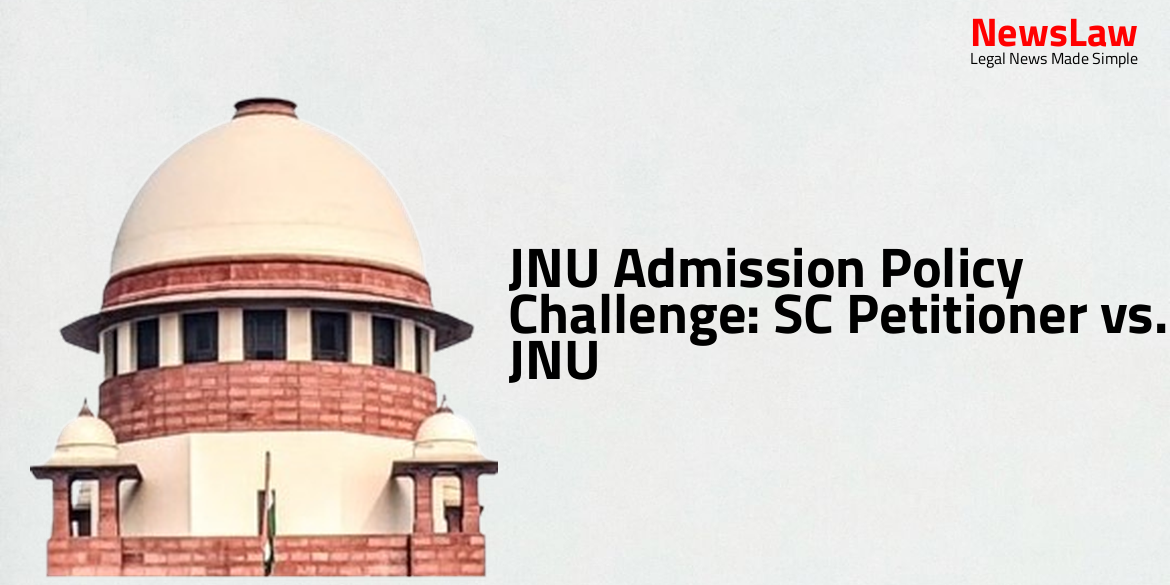In a significant legal battle between the State of Manipur and a landowner, the Supreme Court has made a decisive judgment on the resolution of a land dispute. The case delves into possession rights and the execution of court decrees, highlighting the complexities of legal proceedings post-decree. Let’s explore the details and implications of the State of Manipur v. Landowner case.
Facts
- The appellants filed an application for condonation of delay of 312 days in preferring the Regular First Appeal.
- The delay was attributed to a bonafide mistake in filing the appeal before the wrong forum, i.e., the learned District Judge, Imphal West.
- The Court refused to entertain the appeal citing lack of pecuniary jurisdiction.
- A Judl.Misc. Case No 32 of 2017 was disposed of by the learned District Judge on 28.07.2017, allowing the appellant to file the appeal before the High Court of Manipur.
- The High Court judge found that the delay was not adequately explained for all the days, specifically between 18.07.2016 and 15.06.2017.
- Based on this, the condonation application was rejected by the High Court.
- The appellant spent 44 days in the wrong forum before filing the Regular First Appeal.
- The Regular First Appeal was not entertained on merits.
Arguments
- The contention of the respondent is strongly refuted by the learned counsel for the appellants.
- Both learned counsels for the appellant-State of Manipur and the respondent have been heard.
- The learned counsel for the respondent argues that execution proceedings were concluded on 11.07.2018 after the decree, implying that nothing remains to be considered in the RFA on merits as possession of the land was handed over to the respondent-plaintiff.
- The State of Manipur and other defendants are still in possession of the disputed land.
- This is even after the decree and execution proceedings.
- The possession of the disputed land by the defendants has not been affected by the legal processes.
- The decree has not been effectively executed to transfer possession to the petitioner.
Also Read: Avitel Post Studioz Ltd. v. HSBC: Enforcement of Foreign Arbitral Award
Analysis
- The Court emphasized that the standards of the ‘sufficient cause’ test should not be applied leniently in this case.
- Bureaucratic delay and slow decision-making by the government were noted by the Court and should have been taken into consideration while concluding the case.
- The Court highlighted the importance of not condoning delays in appeals filed by the State, even if the law of limitation may harshly impact the party involved.
- The impersonal nature of the Government’s functioning was cited as a reason for individual officers failing to act responsibly, leading to institutional injustice if appeals are lost due to such defaults.
- In the case against the State of Manipur, the Director General of Police, and the Commandant of 8 battalion of the Manipur rifles, the appellants were directed to vacate certain land designated as strategically important.
- A legal forum was deemed necessary for the appellants to challenge the decree obtained by the plaintiff from the Civil Judge in OS no. 4 of 2015.
- The delay of 44 days in approaching the wrong court was highlighted in the analysis.
- The refusal by the High Court to condone the delay of 312 days in the RFA preferred by the State of Manipur and others was discussed, emphasizing the lack of satisfactory explanation for the delayed appeal filing.
- The State’s failure to provide a valid explanation for the time lapse between July 18, 2016, and June 15, 2017, in filing the appeal before the District Judge (wrong forum) was noted by the Court.
- The failure of the State to adequately explain the remaining period of delay has led to the interest of justice being better served by allowing the appellants’ challenge to the Trial Court’s decree to be examined on merit by the first Appellate Court.
- If the Defendant’s RFA is not permitted to be examined by the Appellate Court, the State will not have an opportunity to address their grievances before a higher Court.
- In cases involving strategically sensitive matters such as security, the consideration of the RFA is crucial to avoid potential harm to public interest.
- In the interest of justice and considering the special circumstances of the case, it is appropriate to exercise jurisdiction under Article 136 of the Constitution of India and interfere with the impugned order of the High Court of Manipur.
Also Read: Insurance Claim Repudiation due to Fire Incident: Court’s Legal Analysis
Decision
- The issue of possession and finalization of execution proceedings is subject to the final decision of the High Court in the RFA No 5 of 2017.
- The Executing Court is directed to refund the sum of Rs. 15,00,000/- along with accrued interest deposited by the appellant-State of Manipur pursuant to the order dated 29.11.2018.
- The appeal is allowed, and the delay in filing the first appeal is condoned.
- The First Appeal should be considered on merit instead of the State being non-suited due to the delay.
- The appellants are directed to pay costs of Rs. 50,000/- in the High Court.
- The Regular First Appeal preferred by the appellants is to be restored and considered on its own merits.
Case Title: THE STATE OF MANIPUR Vs. KOTING LAMKANG
Case Number: C.A. No.-008298-008298 / 2019



